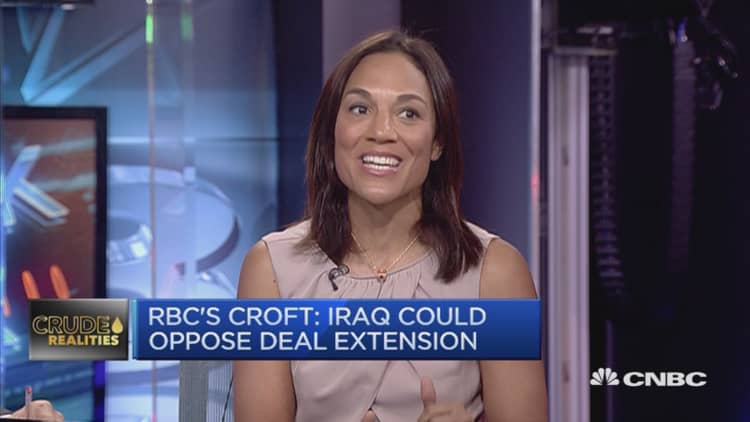
Oil prices rose to their highest levels in more than a month on Monday, amid growing confidence that top exporters would agree to extend supply curbs this week and speculation that the cuts could be deepened further.
Brent crude was up 20 cents at $53.81 a barrel at 2:36 p.m. ET (1836 GMT). U.S. light crude ended Monday's session up 40 cents, or 1 percent, at $50.73.
Both contracts, as well as WTI futures for July delivery, which will soon be the U.S. front-month, were trading at their highest levels since April 19.
The benchmarks were on track to rise for an eighth time in the last nine trading days, putting the contracts up about 16 percent from five-month lows hit earlier this month.
Prices have risen on expectations that a pledge by the Organization of the Petroleum Exporting Countries (OPEC) and other producers, including Russia, to cut supplies by 1.8 million barrels per day (bpd) will be extended by six to nine months.

"The decision (to extend cuts) seems to be almost a done deal," said Bjarne Schieldrop, chief commodities analyst at SEB Markets. "There seems to be a very high harmony in the group."
OPEC heavyweights Saudi Arabia and Iraq agreed on Monday on the need to extend a global cut in oil supply by nine months in an effort to prop up crude prices, removing a potential stumbling block as producing countries prepare to meet this week.
Saudi Energy Minister Khalid al-Falih said on Monday he did not expect any opposition within OPEC to extending oil output cuts for a further nine months. He told a news conference that a new oil output deal would be similar to the previous pact with minor changes.
OPEC Secretary-General Mohammad Barkindo said on Monday that he saw a growing consensus among the group's members as well as non-OPEC producers on the duration of an extension.
The possibility of deepening the cuts was also being discussed ahead of a meeting of OPEC and other producers in Vienna on May 25, sources said.
But such talk could lead to disappointment if not approved, Commerzbank analysts said.
"If the cuts are merely to be extended, this is likely to be met at best with a neutral reception, if not even with disappointment," Commerzbank said in a note.

Some analysts argue that deeper cuts are required to balance the market, but note the cuts so far have stimulated U.S. energy companies to boost shale production.
"We see risks for a renewed surplus later next year if OPEC and Russias production rises to their expanding capacity and shale grows at an unbridled rate," Goldman Sachs said in a note.
U.S. energy companies added oil rigs for an 18th week in a row, the second-longest such streak on record, as higher crude prices motivated drillers to boost monthly shale production to its highest since mid-2015.
U.S. oil production has already climbed by 10 percent, or almost 900,000 bpd, since mid-2016 to 9.3 million bpd.
Libyan oil officials, meanwhile, said its oil production has recovered to 788,000 bpd following power problems that affected output at two eastern fields.
— CNBC's Tom DiChristopher contributed to this report.

